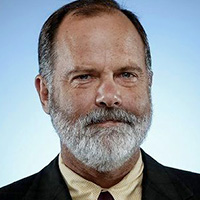CALIFORNIANS ARE CONFLICTED. In the June election, they overwhelmingly backed Gov. Gavin Newsom, who outpaced his closest opponent, Republican State Sen. Brian Dahle, by more than 2 million votes, a walloping margin of nearly 40%. That was Newsom’s second straight win, after he fended off a recall attempt last year, and it would seem to suggest that Californians are happy with their leadership — or, at least, happier with Newsom than anyone who has stepped forward to challenge him.
At the same time, San Franciscans turned out school board members who seemed more intent on renaming schools than advancing forward-thinking education. And they ousted a district attorney who sought to infuse prosecutors with a more progressive vision of criminal justice. Closer to home, Angelenos have flirted with the alternative political vision of Rick Caruso, a hotel developer and newly minted Democrat (Caruso, a former Republican, switched from independent to Democrat just before announcing his candidacy for mayor). He has campaigned against a City Hall that he says has failed to respond to growing homelessness and is soft on crime. Caruso finished second in a crowded field in June and now faces Congresswoman Karen Bass in the runoff. Those results suggest a restive electorate in the state’s largest cities.
So which is it? Are Californians satisfied with their leaders or fed up with them? Do they relish this state as a bulwark against national trends on abortion rights and anti-immigrant anger, or do they pine for tougher cops and traditional schools? Are we happy with our lot or troubled by unease?
“We’re both things,” said Bill Carrick, a veteran political consultant based in Los Angeles. Some Californians, he added, are unhappy over what might be called national trends — inflation, threats to democracy, abortion, guns — while others are unhappy over more localized problems, notably homelessness and crime. But both Angelenos and Californians more generally also appreciate the values of this part of the world and remain committed to Democratic leadership.
A poll in May by the respected Public Policy Institute of California captured some of these views. For starters, it found Californians split down the middle over whether the state is headed in the right direction. Forty-five percent of respondents said yes; 50% said no. Californians were similarly divided over President Joe Biden’s performance; they were feeling the pinch of inflation and all over the map on what California’s leaders should do with the state’s windfall budget surplus. Notably in contrast, however, they were unambiguous in their support for abortion rights and, by a 20- point margin, were inclined to favor Democrats over Republicans in Congressional races.
Some of this bipolarity can be seen in the Los Angeles mayoral race. Caruso had dabbled with running for mayor for at least a decade, so his entry into the race early this year was greeted with high expectation. His political consultant, Ace Smith, who also works with Newsom, is among California’s most respected campaign advisers, and he and Caruso have smartly staked out a lane for Caruso to run in. In the June election, he ran to the right of Bass, City Attorney Mike Feuer and Councilman Kevin de León, among others. That set Caruso apart from the crowd and propelled him into the runoff, prompting a spate of stories that imagined Los Angeles experiencing a reprise of its early-1990s politics, when fear of crime (the 1992 riots left a deep scar) put Republican Richard Riordan into the mayor’s office. Riordan won with the slogan “Tough Enough to Turn L.A. Around.”
But is this 1993 all over again? Unease over crime and homelessness is real, as is anger at City Hall. However, it is hard to think that those issues have the same deep political resonance as a riot that left dozens of people dead, buildings smoldering and $1 billion in property damage. Moreover, Los Angeles has changed since it elected Riordan. A political map highlights those changes: In this June’s election, precincts in the San Fernando Valley that Riordan carried in 1993 went to Bass, not Caruso. “Those precincts have more young people, more Latinos,” Carrick said. And, more broadly: “When Dick got elected, the city was 32% Republican; now it’s 14%.”
These shifting political demographics influence the way voters approach problems. Take homelessness. Some see homeless people as a threat, a source of crime and disorder, to be addressed principally as a law enforcement challenge. This is a view that would tend to bolster Caruso’s candidacy. Others see homeless encampments through a lens of suffering, best approached as a humanitarian concern, calling for solutions such as mental health services and anti-addiction programs. That might incline those voters to favor Bass.
Carrick recalled his work for a candidate years ago in which the campaign polled on these questions. The solutions most popular with voters, he said, almost always borrowed from both sides. The most popular was a pilot program that put mental health workers in the field in place of police, while acknowledging that police had a role as well.
Homelessness makes us both angry and sad, and our responses to it reflect those reactions.
Are we happy or uneasy? Both.























